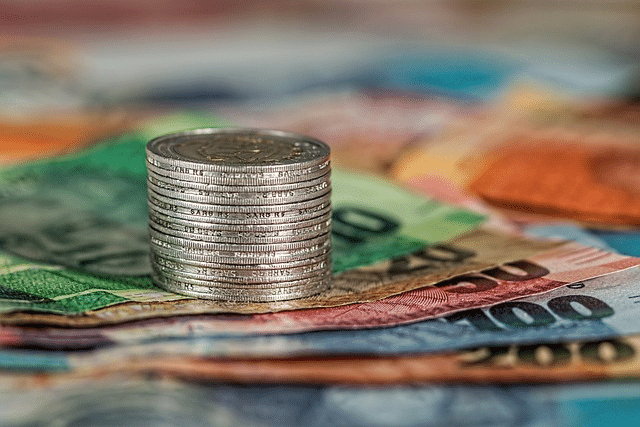Getting into the property market is hard and there are immense amounts of pressure from parents, the media, your peers to not ‘miss the boat’ and get caught in the never-ending cycle of renting to pay off someone else’s mortgage.
This reason I wrote this before educating around how to save for a deposit is due to the fact that it is more important to define your destination before you work out the best vehicle to get you there- if you don’t know where you are going then how are you supposed to work out the best way to get there?
A property normally comes down to two key factors; cash-flow and growth. These two factors need to be discussed independently as it will help you make the decision as to whether you should have your property as an investment or live in it yourself.
Cash-flow Analysis- What do I earn and what do I owe?
A property has two cash-flow considerations which include the incoming cash-flow being the rent you could receive and the outgoing cash-flow being the costs of holding the property. When you are looking to buy a property you need to understand the following:
- What is the potential rental appraisal in current condition- regardless of whether you plan to renovate to increase the rent you need to work off worst case
- What are the costs of holding the property- this includes strata, rates, water, interest repayments, maintenance, insurance
Once you have these numbers you need to prepare a worst case budget analysis which should look like the following example:
Property price- $500,000 (unit)
Strata- $3,000 PA
Council- $1,000 PA
Water- $600 PA
Interest @ 4.2%- $18,900 PA(assuming $450,000 loan interest only)
Insurance- $800 PA
Maintenance- $1,000 (estimate)
TOTAL= $25,300
TIP– It is always worthwhile to price in a buffer such as interest rate increase, additional maintenance, or even a strata special levy to ensure you can buffer against risk.
Next, you need to complete a budget that includes all of your current costs, lifestyle expenditure, holidays and other commitments. This is the most important part. Based on your current earnings, can you afford the above commitment? How does this cost compare to your current living arrangements (are you renting paying $500 per week or living at home paying nothing?)
Although you might be set on living in your own home, let’s do the analysis on having your new property as an investment. The best place to start with this is to jump onto a property site like Domain or Realestate.com.au and they have developed some great analysis tools to give you insight into historical property growth and rental potential. Search for comparable properties and get an idea around what the market rent would be for your property- for this example let’s assume we can get $450 per week
Rental Income- $22,500PA (Based on 50 weeks to cater for potential vacancy)
Total costs- $25,300PA
Cash-flow= -$2800PA ($53 per week out of pocket)
Now in Australia we are lucky on the basis that the government allows us to claim investment property losses as a tax deduction. So at tax time you can inform your accountant of this loss and this will be deducted from your tax return. An example of this is as follows;
Without investment property
Salary- $80,000
Normal Tax- $19,147
Net Income- $60,853
With investment property
Salary- $80,000
Deductions- $2,800
Taxable Income- $77,200
New Tax- $18,181
Net Income- $61,819
Tax Benefit= $966*
Real Property Cost= $1,834 ($35 per week)
*Speak to a good accountant or tax adviser about your individual tax benefits of acquiring an investment property
As you can see, an investment property can be quite cost effective to hold, especially after tax benefits so for some it may be more suitable from a cash-flow perspective when entering the property market.
TIP– It is important to ensure that you do not rely on tax benefits as a means of being able to afford a property so please ensure you look at the pre-tax cash-flow within your personal budget.
Capital Growth- Building your net worth through property
Property has been a popular investment among Australians on the basis that most believe that you cannot go wrong with bricks and mortar. The reason behind this is the ability to have compounding work on very large numbers which allow many property owners to substantially grow their wealth over a seemingly short time frame. This works by taking a small deposit (sometimes as little as 10%), borrowing the rest from the bank and buying a large asset that grows in value. The power of leverage magnifies the outcome; either positive or negative depending on how markets perform.
The idea of capital growth with leverage is as follows;
Lets make an investment in an asset that grows 5% every year over 10 years. Depending on the amount invested, this will vastly change the outcome;
Personal Investment-$50,000
Value in 10 years- $81,400
Growth- $31,400
Personal Investment- $50,000
Borrowing- $200,000
Value in 10 years- $407,000
Growth- $157,000
Personal Investment- $50,000
Borrowing- $450,000
Value in 10 years- $814,000
Growth- $314,000
As you can see, the power of leverage can substantially increase the potential outcome of your investment but you need to be mindful of the risks of any investment before you dive in. Investors can sometimes be caught up in the emotion of the opportunity and not take the time to measure the potential downside so it is important that you consider all eventualities before making a decision.
Myself and Sam Panetta will be conducting a first home buyers seminar at our office in Dee Why where we will be taking first time investors through the tips and traps of getting into the market. Whether you are ready to buy now, want to buy in the future or have a child that you want to help get their first property we will be providing valuable insight from our years of expertise to ensure you get the right advice.
If you are interested in attending please CLICK HERE to reserve your place.
Alternatively, if you want to discuss this outside our free event, please feel free to contact myself or Sam to arrange a chat to review your options.
Thanks for reading,
Jackson | The Wealth Mentor


